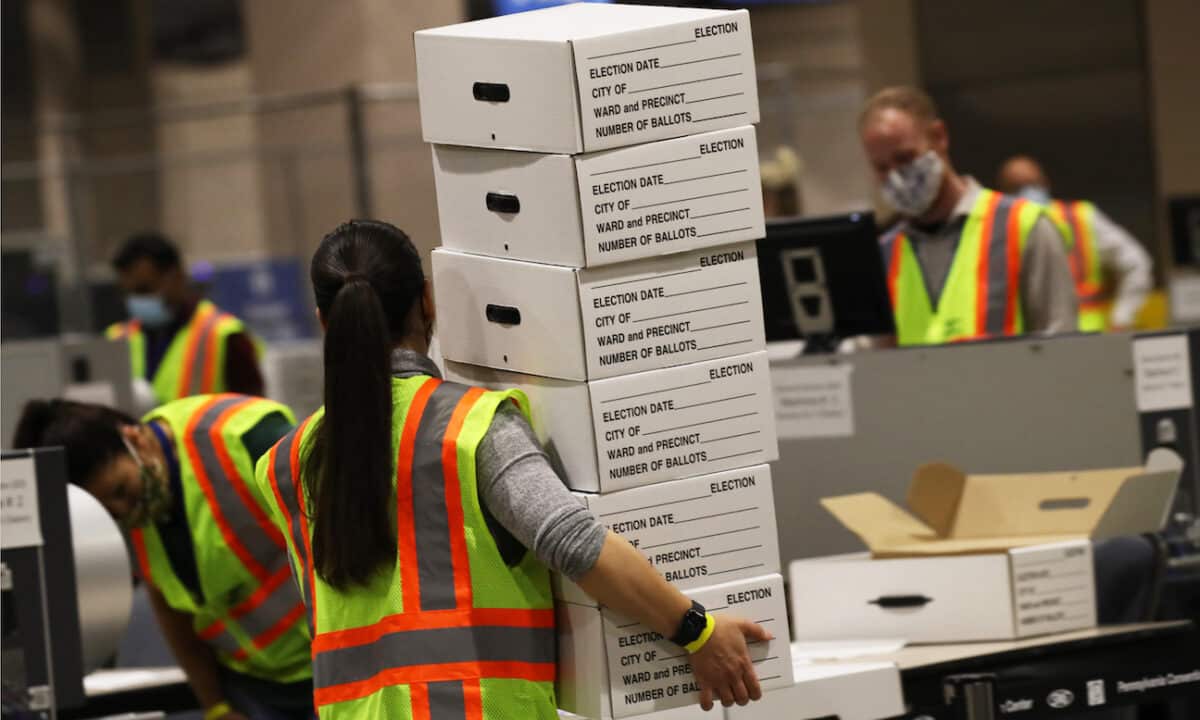The Supreme Court is poised to issue a major ruling that could impact the practice of “ballot harvesting” across the United States.
The court’s current term is slated to expire at the end of this month, which is this Thursday, and it is likely to rule on a voting rights case that calls into question Arizona’s law that bans ballot harvesting, or the practice of collecting ballots for delivery. Also under consideration is the state’s law that mandates the dismissal of ballots that were cast in the wrong voting district.
After the Democratic National Committee filed a lawsuit against the laws, the 9th U.S. Circuit Court of Appeals sided with the Democrats and overturned them. Later, Arizona state Attorney General Mark Brnovich, a Republican, appealed that decision to the Supreme Court.
The GOP-controlled Arizona Legislature passed a ballot harvesting bill in 2016 that made the practice—typically carried out by Democratic-aligned groups—of going door-to-door asking people to take their ballots to a local polling place unlawful. The law makes exceptions for family members, caregivers, and people living in the same household. Republicans have said this would eliminate fraud and other irregularities.
In a divided ruling, the 9th Circuit Court of Appeals’s majority argued that the law was a bid to suppress minority voters.
“The district court found that, in contrast, the Republican Party has not significantly engaged in ballot collection as a Get Out the Vote strategy,” Justice William Fletcher wrote for the majority last year. “The base of the Republican Party in Arizona is white,” Fletcher added. “Individuals who engaged in ballot collection in past elections observed that voters in predominantly white areas were not as interested in ballot-collection services.”
However, Brnovich argued (pdf) to the Supreme Court that the law barely impacted minority groups’ ability to vote and cited “slight statistical differences.”
“No one was denied the opportunity,” he said in his arguments before the court.
Brnovich further stipulated there are a “plethora of options” for voters to cast ballots in elections, saying that the 9th Circuit Court of Appeals used that small statistical difference and then “tried to extrapolate that somehow that Arizona’s laws were racist or unconstitutional.”
Michael Carvin, an attorney for the Arizona GOP, said during questioning that the law creates difficulties for Republicans during elections.
“It puts us at a competitive disadvantage relative to Democrats,” he told Justice Amy Coney Barrett. “Politics is a zero-sum game. And every extra vote they get through unlawful interpretations of Section 2 hurts us. It’s the difference between winning an election 50 to 49 and losing an election.”



